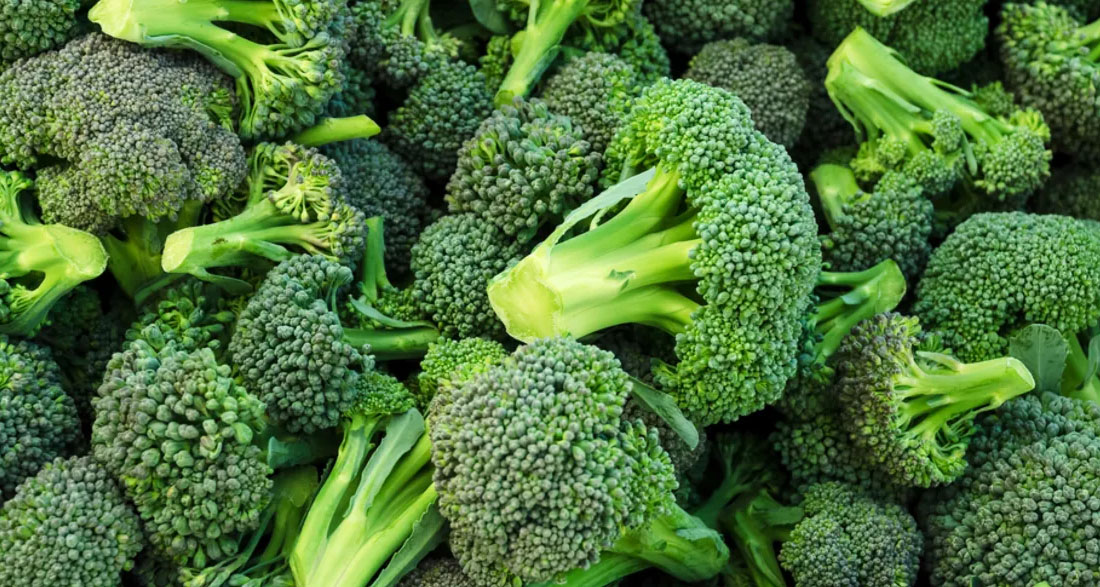A major vegetable recall has been issued for broccoli sold at Walmart stores across several states due to a bacterial contamination risk. If you’ve bought these broccoli florets, it’s crucial to act quickly—don’t eat them! Return or throw them away right away.
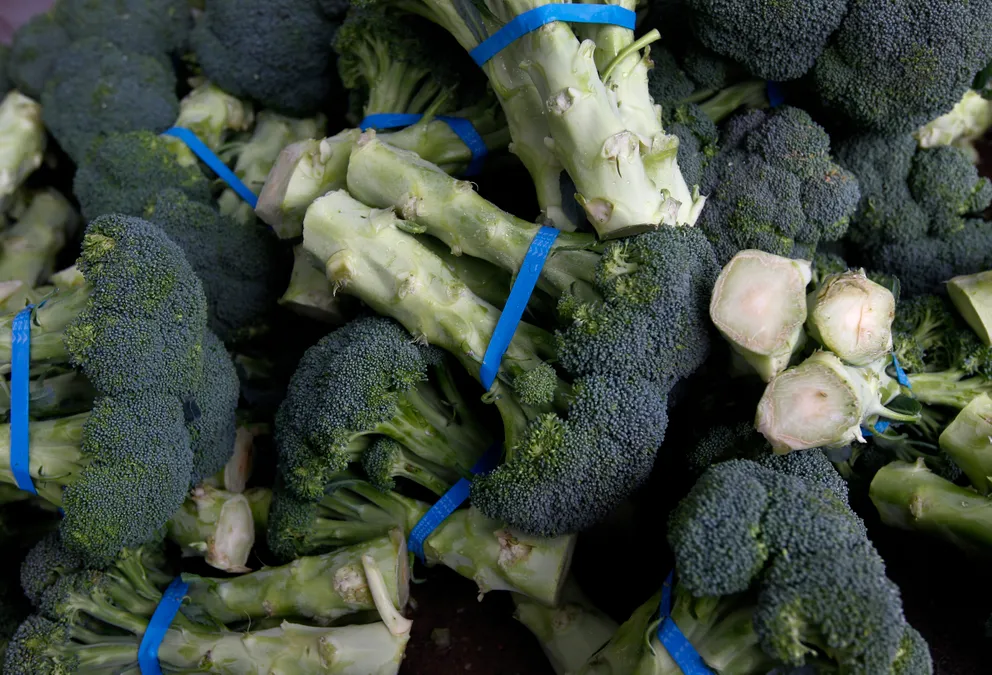
The U.S. Food and Drug Administration (FDA) announced a Class I recall for Marketside Broccoli Florets (12 oz.) after testing found traces of a dangerous bacterium called Listeria monocytogenes. This recall was launched by Braga Fresh Foods LLC on December 27, 2024, affecting nearly 6,000 cases of the product.
The affected packages are labeled with the date “BEST IF USED BY DEC 10, 2024,” and have the code BFFG327A6 13:56 printed on them.
The problem first came to light when Texas Health & Human Services randomly tested products at a Walmart store in Texas. They found that one sample of the broccoli tested positive for Listeria monocytogenes.
Although there haven’t been any reported illnesses from consuming the broccoli so far, health experts are taking no chances and urging people to be cautious.
A Class I recall is the most serious type of recall. The FDA explains that this category signals a “reasonable probability that the use of, or exposure to, a violative product will cause serious adverse health consequences or death.”
Listeria monocytogenes is a dangerous bacteria that can lead to severe infections, especially for certain groups, such as young children, older adults, and those with weakened immune systems.
🚨RECALL ALERT🚨: A recall over Walmart-sold broccoli has been escalated to the highest threat levelhttps://t.co/DtreuuMwSF
— PIX11 News (@PIX11News) February 3, 2025
Infections caused by Listeria can cause fever, headaches, nausea, stomach pain, and diarrhea. But it can be even more dangerous for pregnant women, potentially causing miscarriages or stillbirths.
This recall affects Walmart stores in 20 states, including places like Texas, California, Washington, Illinois, Michigan, and many others. The broccoli was sold in stores across these areas, and customers who bought it should not eat it. Instead, they are being urged to either throw it away or return it to the store for a refund.
Braga Fresh Foods LLC has already notified stores about the recall, using emails, phone calls, press releases, and even in-person visits to make sure they got the word out. The FDA is also keeping a close watch on the situation, as the recall remains in effect.
OUTBREAK: Investigation of E. coli O121:H9 in bagged organic whole & baby #carrots from Grimmway Farms. The voluntary recall is of multiple sizes & brands. Products are likely no longer available for sale in stores – check your refrigerator. Full list> https://t.co/4hPELJXa7d
— U.S. FDA Human Foods Program (@FDAfood) November 18, 2024
While food safety concerns continue to rise, this isn’t the only recall happening right now. Another warning was issued recently regarding organic carrots, which were linked to an E. coli outbreak.
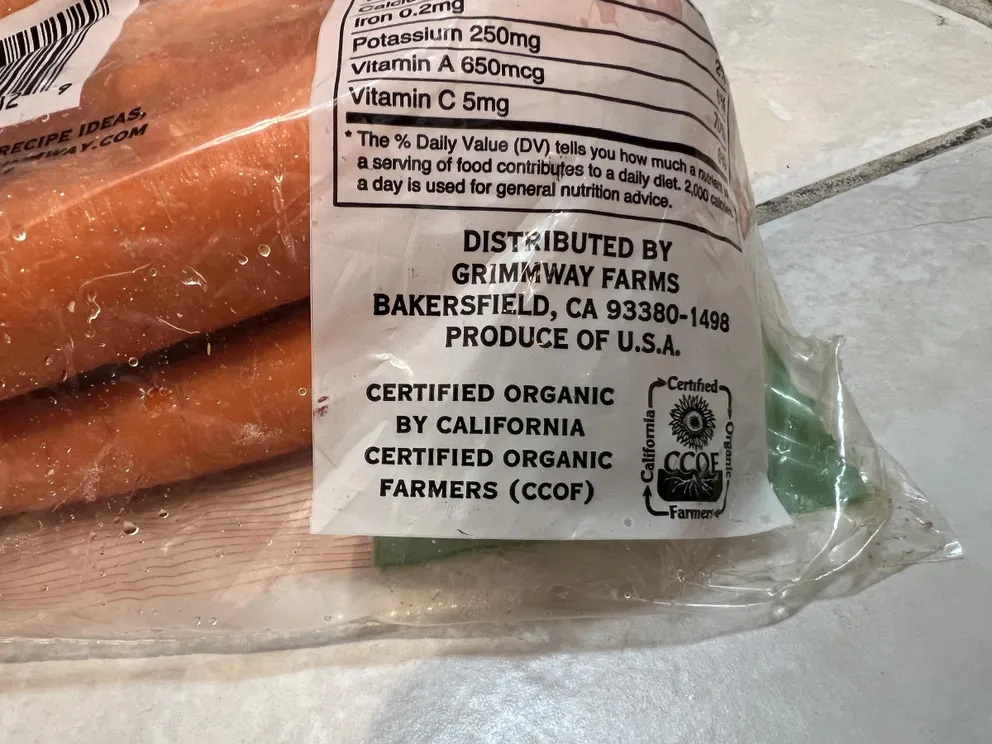
On November 17, 2024, both the Centers for Disease Control and Prevention (CDC) and the FDA alerted the public about the new E. coli outbreak, which was traced back to organic carrots distributed by Grimmway Farms.
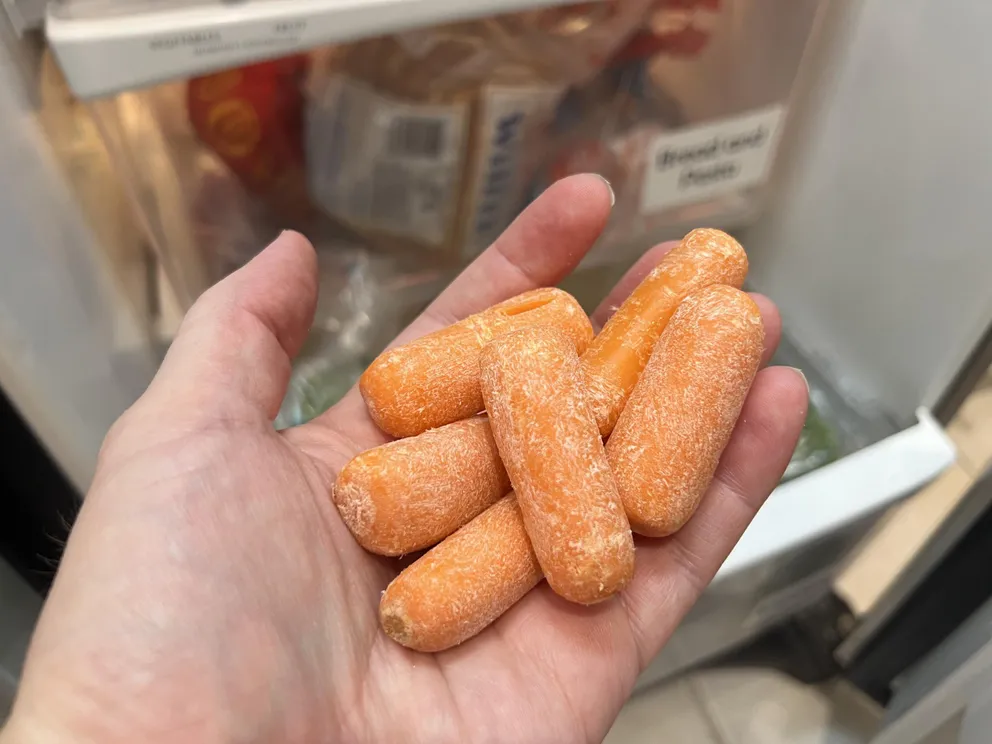
The outbreak involved organic whole and baby carrots from different sizes, and people were warned to be cautious.
Even though Grimmway Farms recalled the affected products on November 16, 2024, the CDC and FDA cautioned that some of the contaminated carrots might still be in consumers’ homes. They urged everyone to check their refrigerators for any recalled carrots and immediately discard them or return them to the store.
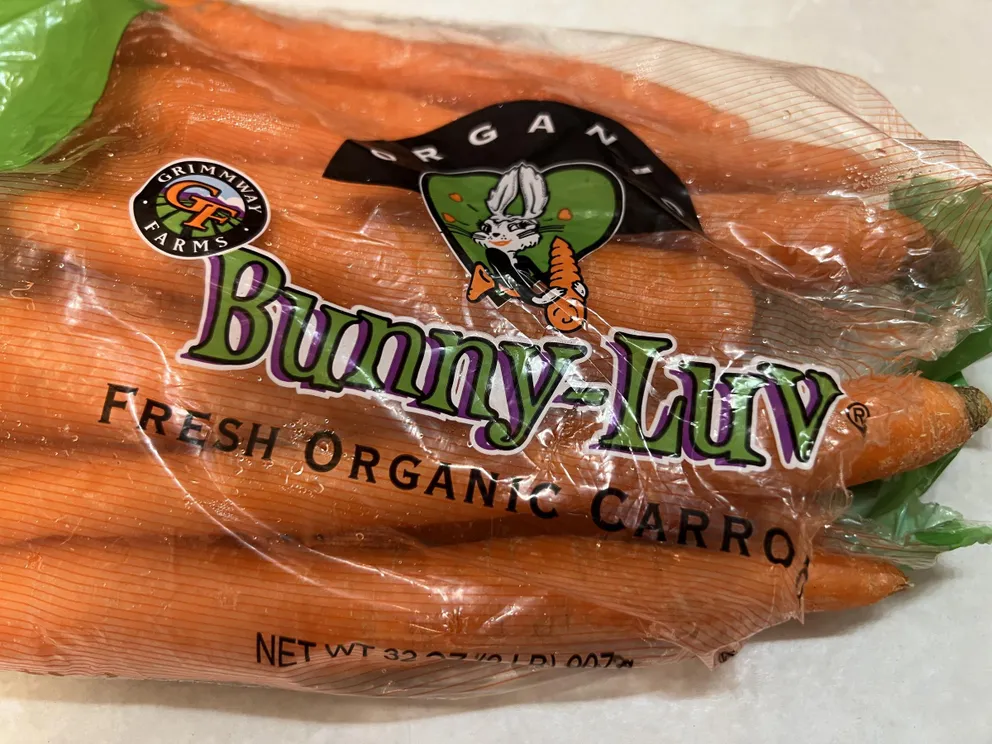
In addition to recalling the carrots, the FDA also warned businesses to stop selling the contaminated products. They also advised everyone to thoroughly wash and sanitize any surfaces or objects that may have come into contact with the carrots.
Grimmway Farms Recalls Organic Whole and Select Organic Baby Carrots That May Be in Consumers’ Homes Due to Potential E. coli Contamination https://t.co/kcnABGhfpD pic.twitter.com/vTGSI0z6Cd
— U.S. FDA Recalls (@FDArecalls) November 18, 2024
The recall involved several well-known brands like 365, Bunny Luv, Cal-Organic, Compliments, Full Circle, Good & Gather, GreenWise, and even Marketside. If you have any of these carrots, make sure to take action and dispose of them safely.
E. Coli Outbreak: 39 people are sick in 18 states. Check your homes for recalled bagged organic carrots. Do not eat recalled carrots. Throw them away. Carrots currently on store shelves are not affected. See the notice for a full list of brands of carrots.https://t.co/lzD2Z1SEAw pic.twitter.com/dL4KpqmZr1
— CDC (@CDCgov) November 17, 2024
These recalls serve as important reminders for everyone to stay alert when it comes to food safety. Always check your products, especially when a recall is announced, and don’t hesitate to return or dispose of anything that could potentially harm you. Stay safe!
An E. coli outbreak tied to organic whole and baby carrots from Grimmway Farms has affected 39 people across 18 states, resulting in 15 hospitalizations and one death, according to the CDC.
— ABC News (@ABC) November 19, 2024
Read more: https://t.co/BuXUEfmgdc pic.twitter.com/fqwq5t3ayk
A serious recall has been issued for organic carrots sold in stores across the country due to a dangerous E. coli contamination. If you’ve bought baby or whole organic carrots recently, you may want to take a closer look at the packaging and take action immediately. This recall is a big deal because it affects not just one brand, but many well-known names.
A deadly E. coli outbreak has been linked to organic carrot from Grimmway Farms, sold at many major chains.
— ABC News Live (@ABCNewsLive) November 18, 2024
“Throw them away immediately,” @ErielleReshef warns.
"Sanitize any surfaces they may have touched." pic.twitter.com/ZpbZclr8qV
The affected baby organic carrots have best-if-used-by dates between September 11 and November 12, 2024. Brands like Nature’s Promise, O-Organic, President’s Choice, Raley’s, Simple Truth, Sprouts, Trader Joe’s, Wegmans, and Wholesome Pantry are all impacted.
If you bought any of these carrots with these dates, it’s crucial to discard them or return them to the store.
⚠️ OUTBREAK: Investigation of E. coli O121:H9 in bagged organic whole & baby #carrots from Grimmway Farms. The voluntary recall is of multiple sizes & brands. Products are likely no longer available for sale in stores – check your refrigerator. Full list> https://t.co/4hPELJWChF pic.twitter.com/Xv1JivF611
— U.S. FDA Human Foods Program (@FDAfood) November 18, 2024
The recall also involves whole organic carrots, but these don’t have specific best-if-used-by dates. However, they were available for purchase between August 14 and October 23, 2024. The brands affected here are identical to those for the baby carrots. So, if you’ve bought organic whole carrots in this time frame, it’s best to check.
The outbreak has affected 18 states, with a total of 39 illnesses reported. Sadly, there’s also one death tied to the contamination. Out of these 39 cases, 15 people were hospitalized, and the last reported illness happened on October 28.
The states impacted by this recall include Arkansas, California, Colorado, Massachusetts, Michigan, Minnesota, Missouri, North Carolina, New Jersey, New York, Ohio, Oregon, Pennsylvania, South Carolina, Texas, Virginia, Washington, and Wyoming.
The CDC interviewed 27 people who became ill, and nearly all of them (26 out of 27, or 96%) had eaten carrots in the week before they got sick. This confirmed that the carrots were linked to the outbreak. The highest concentration of cases was seen in Minnesota, New York, and Washington, while other states like Wyoming, California, and Texas showed more scattered reports.
The carrots were contaminated with a harmful strain of E. coli called Escherichia coli O121:H19, which produces Shiga toxin. This strain is particularly dangerous and can cause severe infections that may even be life-threatening. It’s especially risky for certain groups, such as young children, the elderly, and anyone with a weakened immune system.
“E. coli infections can lead to serious complications,” said a health official from the CDC. “In severe cases, this can result in kidney failure, which may require dialysis or, in some cases, even lead to death.”
The CDC explains that common symptoms of an E. coli infection can include intense stomach cramps, bloody diarrhea, fever, nausea, and vomiting. These symptoms usually appear about three to four days after exposure.
Most people who get infected will recover within five to seven days without needing any special treatment, but some may develop severe kidney problems, like hemolytic uremic syndrome (HUS). HUS can cause kidney failure, and people suffering from it often need to be hospitalized.
The CDC urges anyone who experiences severe symptoms—such as dehydration, persistent diarrhea, or a fever higher than 102°F—to seek medical care immediately. It’s crucial to act fast, as the bacteria can spread quickly and lead to even worse complications.
E. coli is a type of bacteria commonly found in food, water, and even in the intestines of both people and animals. While most strains of E. coli are harmless and even help with digestion and vitamin production, others, like the one in this outbreak, can cause serious illness.
Infection typically happens when people consume contaminated food or water, or come into contact with infected animals, people, or environments.
Certain people are more vulnerable to E. coli infections, including adults over 65, young children, and international travelers. That’s why it’s so important to follow health recommendations to reduce the risk of infection.
The CDC has shared a set of useful tips to help people avoid E. coli infections. They suggest proper food handling, cleanliness, and being careful with water and beverages. One of the best ways to prevent the spread of harmful bacteria is by washing your hands regularly—before, during, and after preparing food. “A good rule of thumb is to wash your hands with soap and water for at least 20 seconds,” the CDC says.
It’s also crucial to clean kitchen surfaces, utensils, and cutting boards after every use with hot, soapy water to prevent cross-contamination. Rinsing fresh fruits and vegetables under running water before eating them can help too.
When dealing with raw meat, poultry, or seafood, it’s important to use separate cutting boards to avoid mixing raw foods with ready-to-eat ones. And never wash raw chicken, as that can spread bacteria all over your kitchen!
When cooking, always make sure you’re cooking food to the right temperature. A food thermometer is key to making sure harmful bacteria like E. coli are killed. For instance, meat should be cooked to 145°F, ground meats to 160°F, and poultry to 165°F. Leftovers should also be heated to 165°F.
To further protect yourself, the CDC recommends refrigerating perishable foods right away, especially if the temperature is over 90°F. Your refrigerator should be kept at 40°F or below to slow bacterial growth.
When you’re out and about, especially while camping or hiking, make sure your water is treated properly to avoid contamination. If you’re swimming, never swallow the water, especially in lakes, ponds, or pools. And if you have diarrhea, don’t swim at all.
Finally, the CDC advises that people should only consume milk, juices, and dairy products labeled as pasteurized. Pasteurization kills harmful bacteria like E. coli, making these products safer to consume.
By following these simple steps, you can protect yourself and your loved ones from E. coli infections and other foodborne illnesses. Always stay vigilant, and if you have any of the recalled products, don’t hesitate to act immediately to stay safe.


